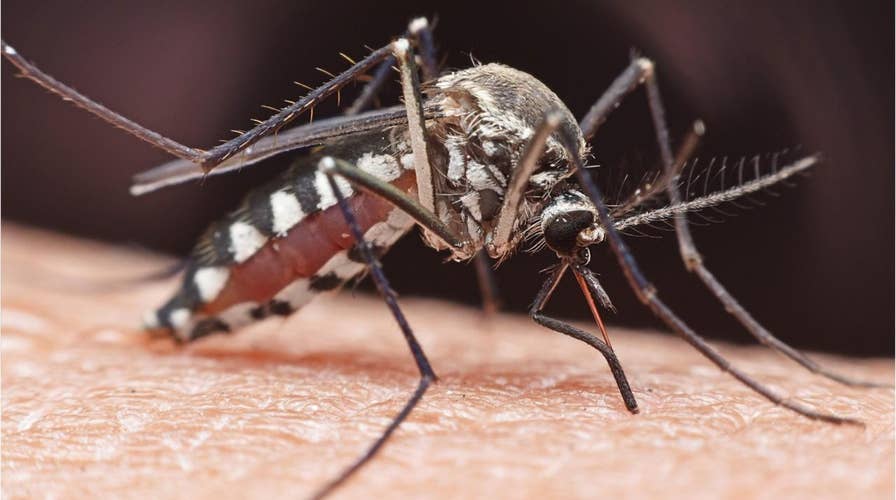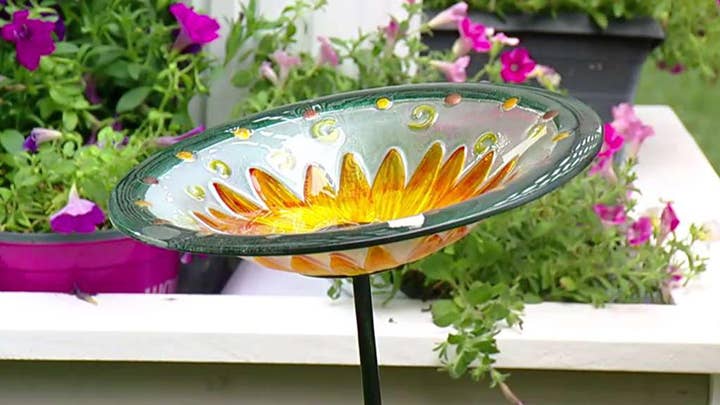How to keep mosquitoes away this summer
Hot and humid weather brings out those pesky mosquitoes. Here are a few simple tips to live a mosquito-free summer.
West Nile-positive mosquitoes have officially reached a well-known county in Southern California for the first time this year.
Officials with the Greater Los Angeles County Vector Control District (GLACVCD), a public health agency that focuses on preventing human infection associated with mosquito-transmitted diseases, announced on Monday that mosquitoes carrying the West Nile virus were identified in Los Angeles County for the first time this year. Susanne Kluh, director of Scientific-Technical Services at GLACVCD, noted that the find “should serve as a reminder that West Nile virus is endemic” in the county.
WHAT IS WEST NILE VIRUS? 3 THINGS TO KNOW ABOUT THE MOSQUITO-SPREAD AILMENT
“As temperatures increase, so do mosquito populations and disease risk, which poses a serious public health threat in our communities,” she continued.
Late rainfalls and warm temperatures have made the perfect breeding ground for mosquitoes, added officials.
The West Nile virus – which was first reported in the U.S. in 1999 – is typically spread by infected mosquitoes. Though side effects can be severe, most people who are infected experience little to no symptoms and fully recover.
A small percentage of people infected with the West Nile virus – roughly 1 in 5 – develop a fever and may additionally experience headaches, body aches, vomiting, diarrhea, or a rash, among other side effects. Even rarer, about 1 in 150 people who are infected with the mosquito-linked ailment can develop a serious illness, such as inflammation of the spinal cord or brain, according to the Centers for Disease Control and Prevention (CDC).
The Mayo Clinic warns people who are older, as well as those with pre-existing medical conditions, are more susceptible to the virus.
There is no vaccine or treatment to prevent the disease, though there are preventive steps to lessen the risk of being bitten by a mosquito in the first place. For instance, the GLACVCD advises to:
- Eliminate standing water in clogged rain gutters, rain barrels, discarded tires, buckets, watering troughs or anything that holds water for more than a week.
- Ensure that swimming pools, spas and ponds are properly maintained.
- Change the water in pet dishes, birdbaths and other small containers weekly.
- Request mosquitofish from your local vector control district for placement in ornamental ponds.
- Wear insect repellent when outdoors where mosquitoes may be present.
- Report neglected (green) swimming pools in your neighborhood to your vector control district.
“Our agency will continue monitoring disease activity and treat affected areas,” said Mary-Joy Coburn, director of community affairs for GLACVCD, in a statement. “Although the positive mosquitoes were collected in one area at this time, all LA County residents should take precautions, like wearing insect repellent and eliminating standing water around the home.”
CLICK HERE FOR FULL CORONAVIRUS COVERAGE
The news comes after the New Mexico Department of Health last week announced the state’s first human case of the mosquito-borne disease in a man in his 50s from San Juan County.
Separately, the Food and Drug Administration (FDA) recently granted approval of the only drug in the country to treat “severe” cases of malaria, another mosquito-borne disease.


